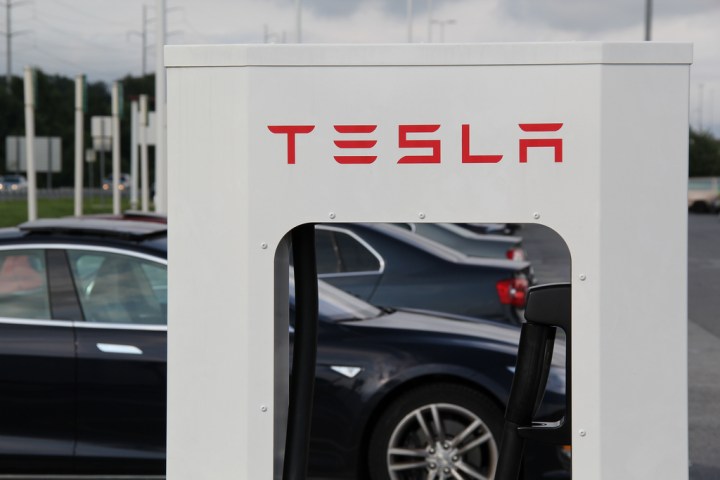
If you’re a Tesla owner planning a cross-country trip for next year, you’re in luck. The company is planning to install the next-generation version of its Superchargers — the charging stations that allow drivers to fill up their vehicles with a fresh charge and stay on the road — in the early part of 2019.
Word of the upgrades to the Supercharger stations came from Tesla CEO Elon Musk, who took to Twitter to announce the rollout. The third version of the charging station will apparently offer a “much faster” charge than previous generations, according to Musk. He didn’t disclose the details as to how fast it would be able to provide a full charge. Current Supercharger stations can recharge a Tesla in 30 minutes, according to the company. They deliver up to 120 kilowatts of charging power to vehicles.
Musk also took a second to note that Tesla has significantly expanded the Supercharger network. He said in a tweet that he expects to double the current Supercharger capacity by the end of 2019. There are currently 11,414 Superchargers worldwide, located at 1,375 total charging stations. Tesla opened 44 new Supercharger locations during the third quarter of 2018, according to the company’s latest earnings report.
According to Musk, the Superchargers will be within range of 95 to 100 percent of populations in “active markets.” That term likely means regions where Teslas are registered. It’s not clear what “within range” means, exactly. If it means within range of how far a car can go on a single charge, that could mean as much as 200 or 300 miles.
While Musk was short on details for the new generation of the Superchargers, he did bring his standard optimism about the future of electric vehicles. When asked by a user on Twitter whether he believes charging stations will replace all gas stations in the next 50 years, Musk replied with a simple and straightforward “Yes.” Tesla has a long way to go to facilitate the total takeover of every gas station, but expanding the presence of its Superchargers would certainly be a step in the right direction. The company has a whole 50 years to figure the rest out, anyway.
Editors' Recommendations
- The Tesla Model Y is at its lowest price yet — but should you buy one?
- Tesla’s fix for faulty Cybertruck pedal is simpler than you might think
- Fly through Tesla’s Giga Berlin factory in this epic drone video
- Here’s how Ford will give EV customers Tesla Supercharger access
- Tesla Autopilot vs. full self-driving: What’s the difference?


